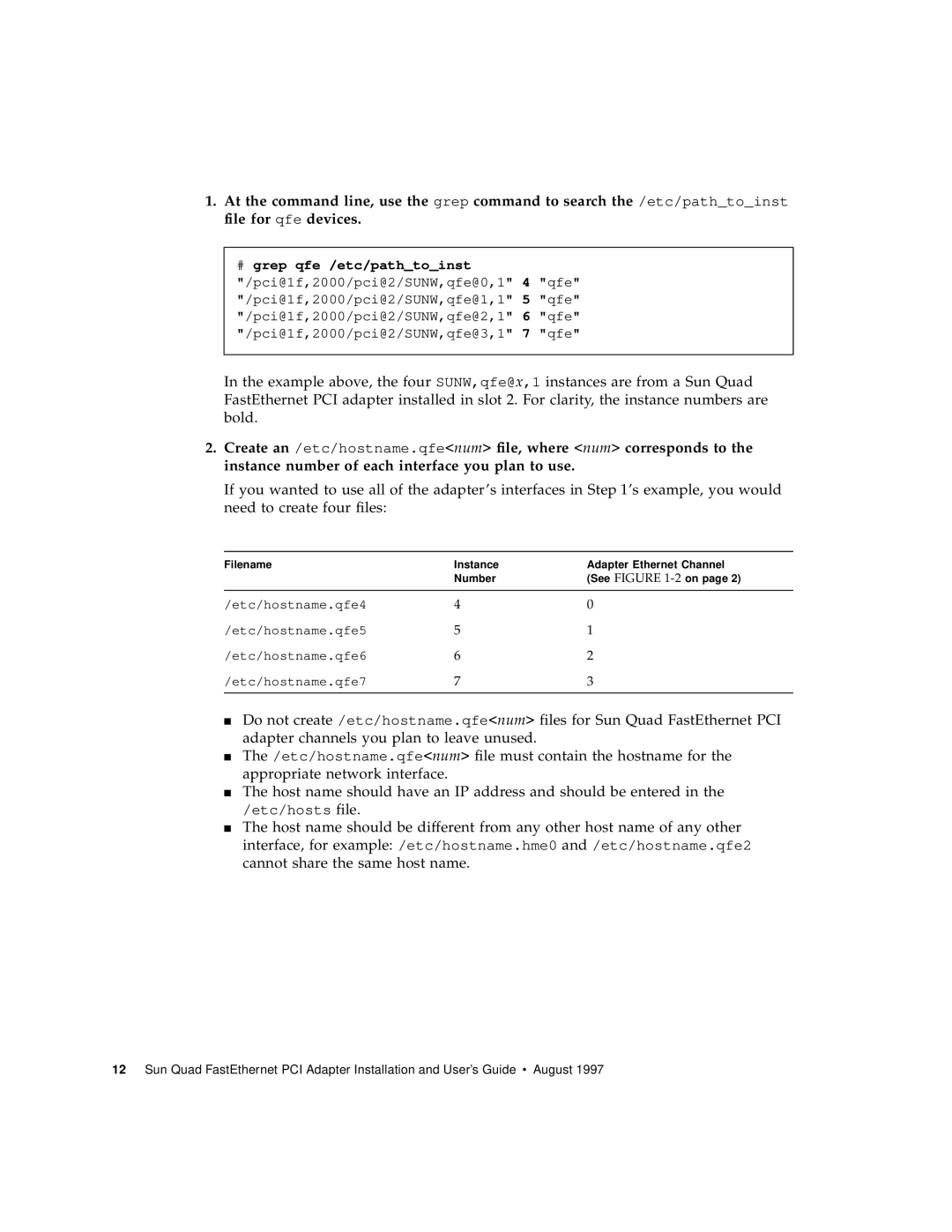
1.At the command line, use the grep command to search the /etc/path_to_inst file for qfe devices.
#grep qfe /etc/path_to_inst "/pci@1f,2000/pci@2/SUNW,qfe@0,1" 4 "qfe" "/pci@1f,2000/pci@2/SUNW,qfe@1,1" 5 "qfe" "/pci@1f,2000/pci@2/SUNW,qfe@2,1" 6 "qfe" "/pci@1f,2000/pci@2/SUNW,qfe@3,1" 7 "qfe"
In the example above, the four SUNW,qfe@x,1 instances are from a Sun Quad FastEthernet PCI adapter installed in slot 2. For clarity, the instance numbers are bold.
2.Create an /etc/hostname.qfe<num> file, where <num> corresponds to the instance number of each interface you plan to use.
If you wanted to use all of the adapter’s interfaces in Step 1’s example, you would need to create four files:
Filename | Instance | Adapter Ethernet Channel |
| Number | (See FIGURE |
|
|
|
/etc/hostname.qfe4 | 4 | 0 |
/etc/hostname.qfe5 | 5 | 1 |
/etc/hostname.qfe6 | 6 | 2 |
/etc/hostname.qfe7 | 7 | 3 |
|
|
|
■Do not create /etc/hostname.qfe<num> files for Sun Quad FastEthernet PCI adapter channels you plan to leave unused.
■The /etc/hostname.qfe<num> file must contain the hostname for the appropriate network interface.
■The host name should have an IP address and should be entered in the
/etc/hosts file.
■The host name should be different from any other host name of any other interface, for example: /etc/hostname.hme0 and /etc/hostname.qfe2 cannot share the same host name.
12 Sun Quad FastEthernet PCI Adapter Installation and User’s Guide • August 1997
